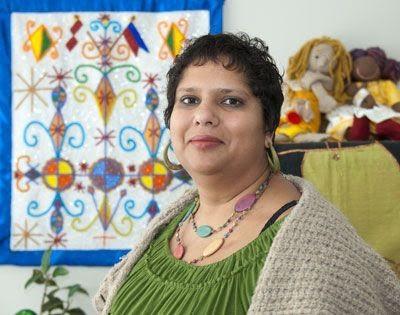By Alanna Rizza
A Ryerson graduate and associate professor thinks full healthcare benefits should be available for all Syrian refugees, and she is currently providing care to pregnant refugees all by herself.
“Pregnancy might not be an emergency, but for that woman who’s pregnant and who’s come from across the world and has left war, knowing that the child she’s carrying is OK or knowing that she has options to not carry that child, is actually an emergency,” said Manavi Handa.
“It is unfortunate and yet not surprising, that I feel like the needs of pregnant women, like they often are, have been quite overlooked,” she said.
Handa has been volunteering at a refugee hotel since mid January through Access Alliance, an organization that aims to provide healthcare for immigrants and refugees. All of the refugees are government sponsored and are from Syria.
Handa is the only midwife at the hotel, along with medically trained translators. She is currently taking care of 20 clients.
She said that working with pregnant women is “very gratifying” but her volunteer work with refugees is especially fulfilling. However Handa admits that it is stressful.
“A big part of why I am there, is knowing that people three kilometres away are without any [healthcare] and that would be more stressful to me,” she said.
Three kilometres away from the hotel is The West End Midwives where Handa also works. Handa goes from volunteering at the hotel, to working at the clinic one or two days a week, to then coming to teach at Ryerson at the midwifery education program.
When her clients move out of the hotel to a new home, Handa’s biggest struggle is finding them healthcare in their new neighbourhood.
“I can’t stress how important it is to have pregnancy care on site.”
“As much as people say, ‘You’re in a safe place and you’ve made it,’ it’s takes a long time [for them] to feel safe,” she said.
Handa said a factor in how refugees are not properly accessing healthcare is that her clients are scared to leave the hotel because they are unfamiliar and not sure how safe their surroundings are.
Another factor is that most refugees don’t speak English, they aren’t dressed for the winter and that the average family has seven children. Handa’s clients do not want to leave their kids to go to a clinic outside of the hotel.
Handa said this is why it is extremely important for refugees to have full healthcare benefits on site. She explained how one of her clients was experiencing severe nausea and vomiting and that Handa prescribed her medication costing about $100. Since most of the refugees have no money, without the healthcare benefits, Handa’s client’s condition would have gotten worse and she wouldn’t be able to take care of her other children.
“One of the things I really like about my job in particular, is that I get to see a lot of amazing resilience that people have,” Handa said.
She talks to her clients about post traumatic stress disorder and depression. Handa said that one of her clients said to her that Syrians are strong and that they will get through it.
“She looked very candidly at me and she said, ‘We’re really strong. The fact that we’ve made it here, we are the ones that have survived.’ ”
“It can’t be underestimated that people who have been through this much are survivors.”
Even though Handa has done a lot for her clients, she doesn’t see it as just volunteer work.
“It’s not about the fact that I am doing this for free. I am a healthcare provider, this is a community that is down the street, and they need care.”












Tasha
Hanada or Handa? Correct spelling?